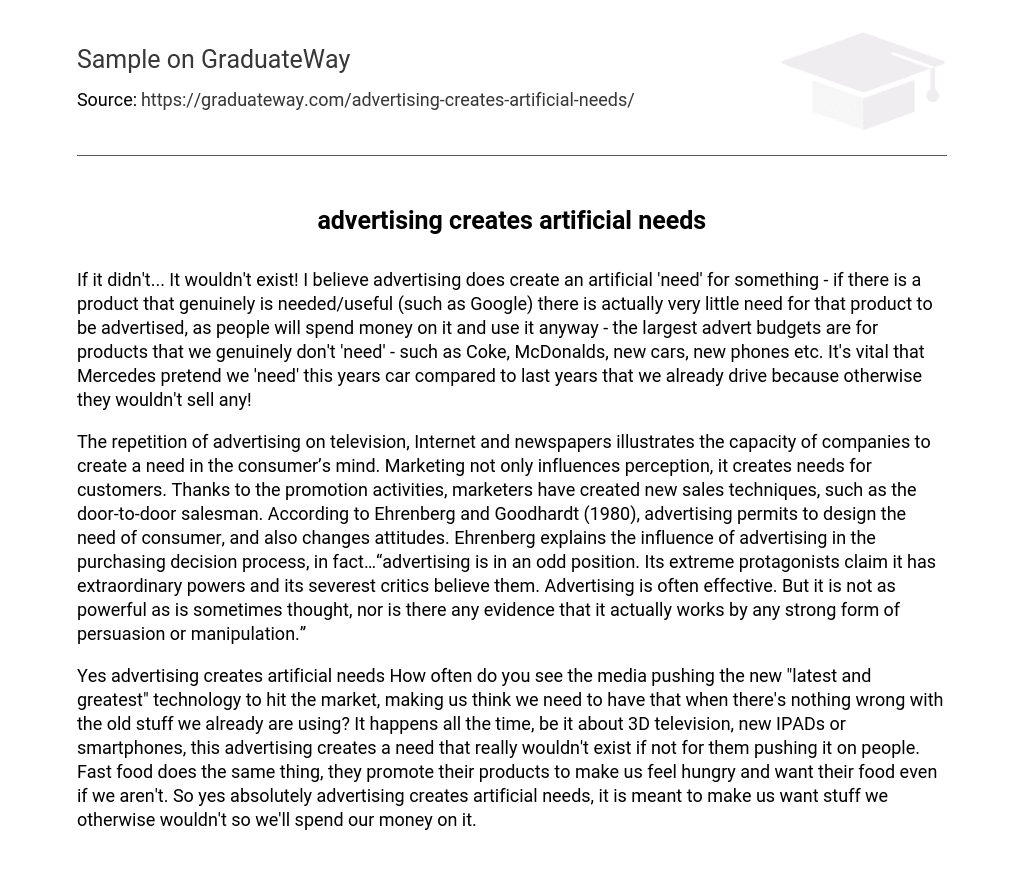If it didn’t… It wouldn’t exist! I believe advertising does create an artificial ‘need’ for something – if there is a product that genuinely is needed/useful (such as Google) there is actually very little need for that product to be advertised, as people will spend money on it and use it anyway – the largest advert budgets are for products that we genuinely don’t ‘need’ – such as Coke, McDonalds, new cars, new phones etc. It’s vital that Mercedes pretend we ‘need’ this years car compared to last years that we already drive because otherwise they wouldn’t sell any!
The repetition of advertising on television, Internet and newspapers illustrates the capacity of companies to create a need in the consumer’s mind. Marketing not only influences perception, it creates needs for customers. Thanks to the promotion activities, marketers have created new sales techniques, such as the door-to-door salesman. According to Ehrenberg and Goodhardt (1980), advertising permits to design the need of consumer, and also changes attitudes. Ehrenberg explains the influence of advertising in the purchasing decision process, in fact…“advertising is in an odd position. Its extreme protagonists claim it has extraordinary powers and its severest critics believe them. Advertising is often effective. But it is not as powerful as is sometimes thought, nor is there any evidence that it actually works by any strong form of persuasion or manipulation.”
Yes advertising creates artificial needs How often do you see the media pushing the new “latest and greatest” technology to hit the market, making us think we need to have that when there’s nothing wrong with the old stuff we already are using? It happens all the time, be it about 3D television, new IPADs or smartphones, this advertising creates a need that really wouldn’t exist if not for them pushing it on people. Fast food does the same thing, they promote their products to make us feel hungry and want their food even if we aren’t. So yes absolutely advertising creates artificial needs, it is meant to make us want stuff we otherwise wouldn’t so we’ll spend our money on it.





